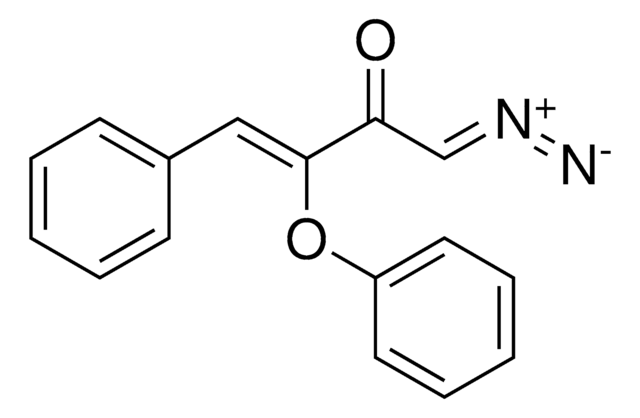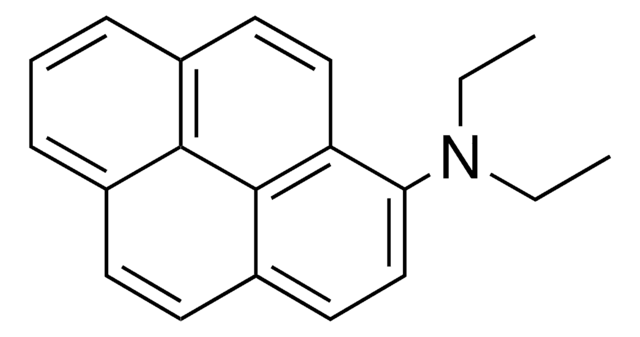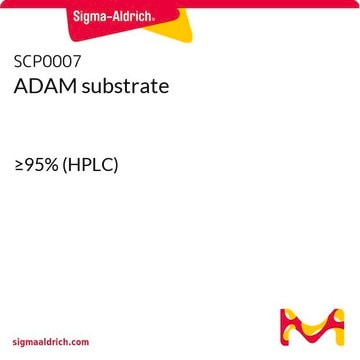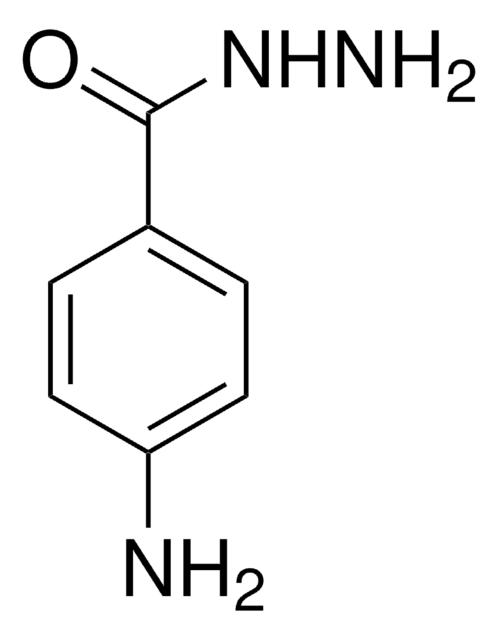P6863
PDAM
≥70% purity (HPLC), for HPLC derivatization, solid
Synonym(s):
1-Pyrenyldiazomethane, Pyrene, 1-(diazomethyl)
About This Item
Recommended Products
product name
PDAM, for HPLC derivatization
grade
for HPLC derivatization
Quality Level
Assay
≥70% (HPLC)
form
solid
λmax
338-344 nm
fluorescence
λem 371-379 nm
application(s)
diagnostic assay manufacturing
hematology
histology
shipped in
dry ice
storage temp.
−20°C
SMILES string
[N-]=[N+]=Cc1ccc2ccc3cccc4ccc1c2c34
InChI
1S/C17H10N2/c18-19-10-14-7-6-13-5-4-11-2-1-3-12-8-9-15(14)17(13)16(11)12/h1-10H
InChI key
PEIBAWRLFPGPAT-UHFFFAOYSA-N
Application
Storage Class Code
11 - Combustible Solids
WGK
WGK 3
Flash Point(F)
Not applicable
Flash Point(C)
Not applicable
Personal Protective Equipment
Choose from one of the most recent versions:
Certificates of Analysis (COA)
Don't see the Right Version?
If you require a particular version, you can look up a specific certificate by the Lot or Batch number.
Already Own This Product?
Find documentation for the products that you have recently purchased in the Document Library.
Our team of scientists has experience in all areas of research including Life Science, Material Science, Chemical Synthesis, Chromatography, Analytical and many others.
Contact Technical Service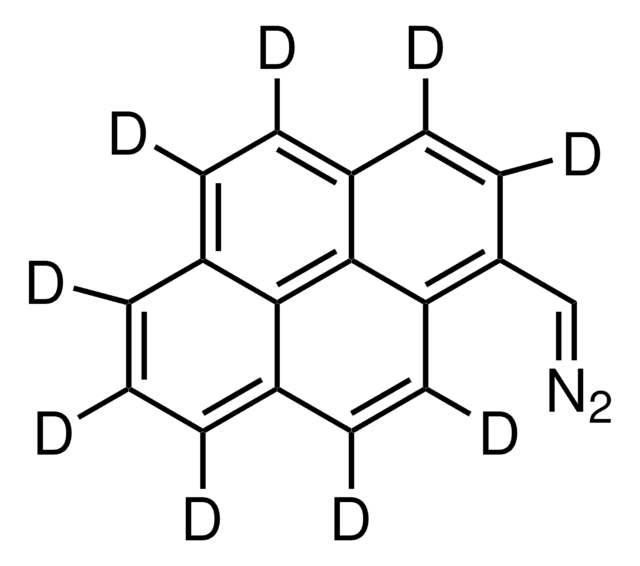

![Benzo[k]fluoranthene for fluorescence, ≥99%](/deepweb/assets/sigmaaldrich/product/structures/277/320/3e615f9f-3887-40f6-b176-bc1eb9b4832c/640/3e615f9f-3887-40f6-b176-bc1eb9b4832c.png)
